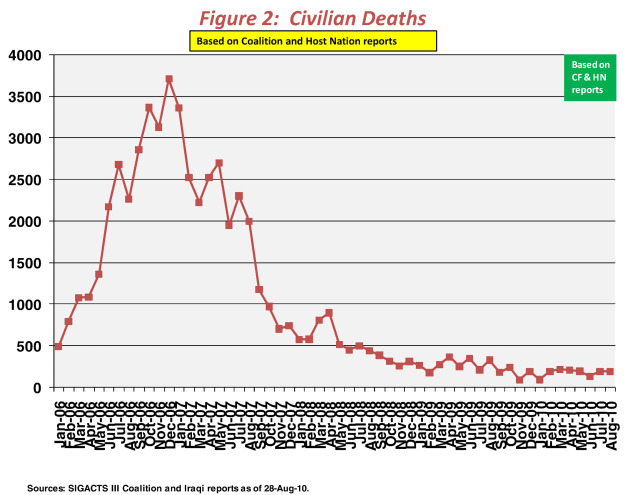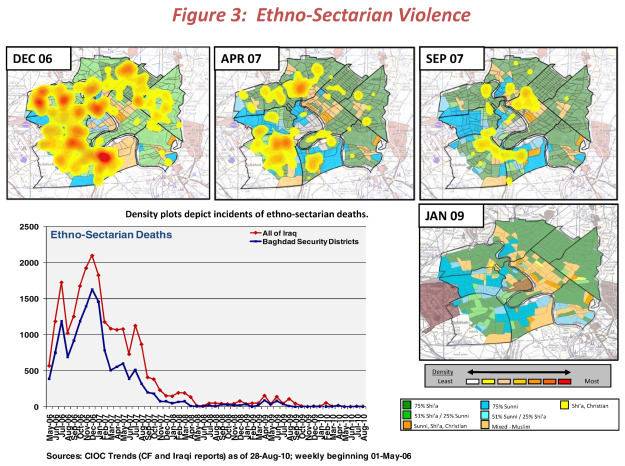Iraq’s Narrative
What is the long arc of America’s involvement in Iraq?
For two very different approaches to this question, take a look at the a Defense Department official’s description of the blueprint for Iraq and Anthony Shadid’s wrenching story of one family’s encounter with Operation Iraqi Freedom. Each in their way is trying to make sense of the seven-year war, giving us a story line to make sense of what’s happened, where Iraq is going, and what it might mean.
On ForeignPolicy.com’s Middle East Channel, Deputy Assistant Secretary of Defense for the Middle East Colin H. Kahl outlines America’s goals in Iraq for 2011 and beyond. Most interesting are some of the details, like the mention that America’s civilian presence in the long-term will be concentrated in the Kurdish north, and the rhetorical shift from war and occupation to “strategic partnership” and a “train-and-equip” military mission. In Defense Department fashion, the most compelling illustration of the narrative arc comes in these Power Point slides, which show death tolls.
 For a sense of what those deaths look and feel like, we can turn to Anthony, who deploys his formidable gifts to tell us the human narrative. He delivers the kind of sweeping, gripping tale that we’ve come to expect from him. In this case, he accompanies a family that is searching for one of its dead five years after his murder and disappearance.
For a sense of what those deaths look and feel like, we can turn to Anthony, who deploys his formidable gifts to tell us the human narrative. He delivers the kind of sweeping, gripping tale that we’ve come to expect from him. In this case, he accompanies a family that is searching for one of its dead five years after his murder and disappearance.
The odyssey contains so much of what defines life in Iraq: fear, death, bureaucracy, sectarian resentment and underlying it all, a deep strain of bewilderment. In one scene, the Sunni family goes to a police station in a Shia area for a document they need in order to obtain a death certificate.
The family needed a letter from the police station, the first step in claiming Muhammad’s death certificate and finding out where he was buried. With Hamid beside her, the mother pleaded to let them inside. For five years they had looked for him, she said.
The policeman glared at her suspiciously. “If you’re lying, I’ll put you all in jail right now,” he shouted.
“My son is dead, and this is what you say to us?” the mother answered.
The policeman turned his head in disgust.
“Dog,” he muttered under his breath.
Slogans litter Baghdad. They are scrawled on the blast walls that partition this city of concrete. They proclaim unity from billboards over traffic snarled at impotent checkpoints. The more they are uttered, it seems, the less resonant they become.
“Respect and be respected,” read the one the family passed, entering the police station.


